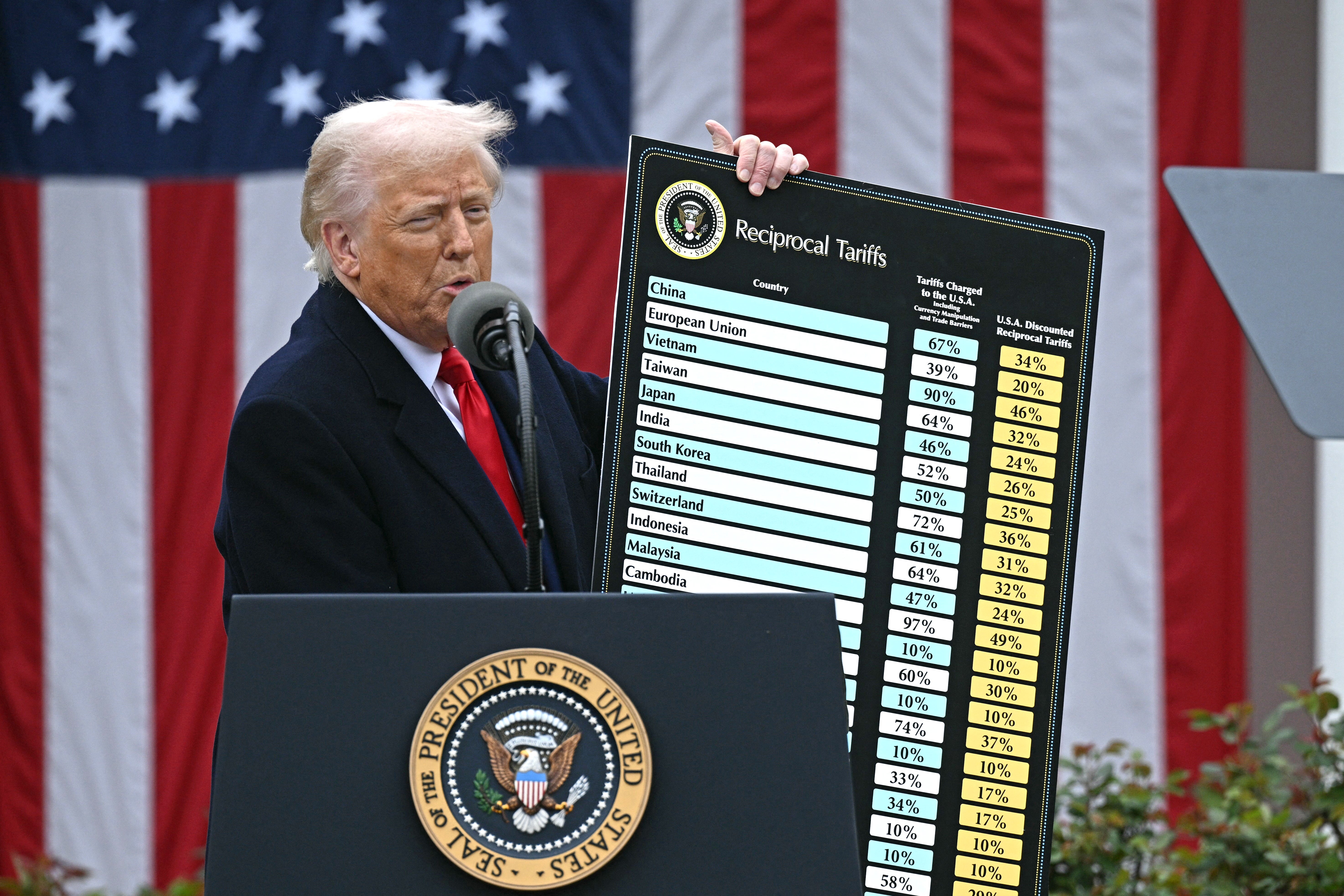Manufacturers and suppliers across Asia are anxious over the future of apparel hubs following Donald Trump's sweeping tariffs that they believe could endanger their businesses.
The US president on Wednesday slapped particularly harsh tariffs on major apparel manufacturing countries in Asia, with Cambodia being hit by 49 per cent levies, followed by Vietnam with 46 per cent, Bangladesh with 37 per cent, Indonesia with 32 per cent and "very good friend" India at 26 per cent.
The tariffs have pushed companies in mostly impoverished South Asian countries such as Sri Lanka and Bangladesh – both nations that have recently witnessed political upheaval and a socio-economic crisis – to press government officials to negotiate with the Trump administration to prevent foreign buyers bolting to save costs.
The tariff hike will directly impact the fast-fashion retailers and sportswear brands manufactured in Vietnam, Bangladesh, Indonesia and Sri Lanka.
The US is one of the world’s largest consumers of apparel and footwear, but only 2.5 per cent of the US apparel market and 1 per cent of footwear are produced domestically.
Manufacturing hubs in South Asia got a boost during President Trump’s first term, when tariffs on China pushed apparel and footwear makers to shift to other parts of Asia. However, the hefty tariffs have left them nowhere to hide.
"We knew something was coming, but we never expected it to be this drastic ... This is terrible for our business and for thousands of workers," garment exporter Shahidullah Azim, whose clients include North American and European retailers, told Reuters.
Mr Azim said his company, which employs 3,200 factory workers, was bracing for order cancellations as rising costs for buyers could spell the end of Bangladesh's competitive edge.
The ready-made garment industry is of existential importance to Bangladesh's economy, accounting for more than 80 per cent of total export earnings, employing 4 million people, mostly women, and contributing roughly 10 per cent to its annual GDP.
Bangladesh, the second-largest producer after China, produces garments for global brands such as Carrefour, Tire, Uniqlo, Primark, H&M and Zara. Manufacturers rued that buyers would be forced to choose other cost-competitive markets, which would be a massive blow to the industry in Bangladesh.

The International Apparel Federation, which represents garment manufacturers in 40 countries, called the tariffs a "major shock", adding: "Ultimately, someone will have to pay the price."
In Sri Lanka, the garment industry exports about 40 per cent of its output to the US, which helped the island nation earn $1.9bn last year, following a massive economic crisis that triggered a mass protest against the government in 2022
The tariffs will hurt more than 350,000 employees of the garment industry. Apparel is also Sri Lanka's second largest foreign exchange earner, which helped the country limp back to economic stability following the protests.
Sri Lankan president Anura Kumara Dissanayake's office said in a statement that a panel of government officials and apparel companies has been formed to study "potential issues" that could arise from the new tariffs.
"Sri Lanka could very quickly see its share of US business move to countries with lower tariffs," said Yohan Lawrence, Secretary General of Sri Lanka's Joint Apparel Association Forum. "This situation is serious, and it must be addressed as a matter of national urgency."
Trade group United States Fashion Industry Association said they were "deeply disappointed by the Trump Administration’s decision to impose new tariffs on all imports". It added that the action will "particularly affect American fashion brands and retailers”.
Trump tariffs live updates: Starmer vows to ‘shelter’ UK businesses
India’s crackdown on Muslim charitable trusts sparks fears for religious freedom
How a king’s carpet gave a voice to Afghan women silenced by the Taliban
US immigration officials detain Taliban’s former ambassador to Spain
Russian authorities move to lift the terrorist designation for the Taliban
Pakistan sees highest number of militant attacks during Ramadan in a decade







